
The Legacy Challenge: How Cities Achieve Lasting Positive Effects After the European Capital of Culture Year
Thursday, October 10
9.30 – 11.00
Senate Room, The Rectorate Building of the Politehnica University of Timișoara, Piața Victoriei nr. 2
The European Capital of Culture Programme has shown, over the years, the many ways in which culture can contribute to local and regional development. From programmes that looked like year-long festivals, to ambitions related to urban regeneration, tourism development, increased quality of life for residents or a democratic boost of civic participation, ECoCs have demonstrated that there are indeed many different routes to reach the vision of the Programme, summed by its two general objectives, which are ”‘to safeguard and promote the diversity of culture in Europe, highlight the common features they share, increase citizens’ sense of belonging to a common cultural space”, and to “foster the contribution of culture to the long-term development of cities”. The impact and the legacies of the more than 60 cities or regions that have held the title since 1985 are the long-term achievements of each capital of culture and of the Programme as a whole. What remains after the Year has ended?
During this opening panel, we explore the story of Matera-Basilicata 2019 and that of Timișoara 2023, next to a more general outlook, based on researches about the role of culture and creativity for societal goals and on preliminary observations and discussions of the interim evaluation of the 2020-2033 generation of European Capitals of Culture. Arthur Le Gall (Director, KEA European Affairs), Silvia Fierăscu (Lecturer and researcher, West University of Timișoara) and Carlo Ferretti (Head of Research and Innovation, Consorzio Materahub) will explore the answers to some of the key questions around the theme of impact and legacy of ECoC programmes.
- What are the cultural programme features and the more general conditions related to governance, funding, artistic production, tourism, communication etc. that can drive/foster a long-lasting positive impact?
- What is the role of the public administration and of universities in supporting the cultural and creative players?
- Which are some of the important decisions that a city or a region needs to make to ensure that positive effects become lasting resources and strengths for the future?
Speakers
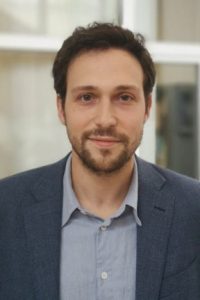
Arthur Le Gall
Arthur Le Gall is director at KEA and co-founder of the b.creative network, a global community of more than 1500 creative entrepreneurs. Arthur has 10+ years of experience in evaluating and designing support programmes and policies for the cultural and creative sectors to nurture arts, culture and creativity across Europe and beyond. Arthur also delivers strategic advice to local authorities on the role of sport, culture and creative industries for local and regional development, and he is currently part of the team performing the mid-term evaluation of the European Capitals of Culture Action for 2020-2033.
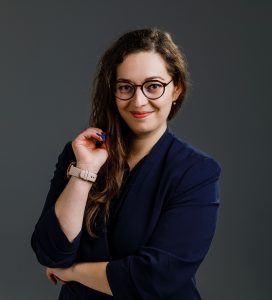
Silvia Fierăscu
Dr. Silvia Fierăscu is a Lecturer at the Department of Communication Sciences, the Founder and Director of FabLab – Social Fabrics Research Lab, and Researcher at the Big Data Science Laboratory, all at West University of Timișoara. She holds a PhD in Political Science with a specialisation in Network Science from Central European University in Budapest, and she is Head of OrgMapper Academy at Maven7 Network Research Inc. She works with the Center for Projects of the Municipality of Timișoara to map the network effects of the Timișoara ECoC Programme on the local organisation ecosystem, and to make recommendations for future public policies to support a positive legacy of the Programme.
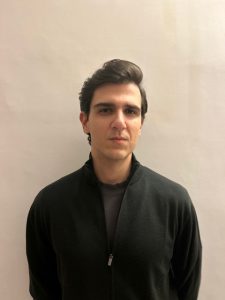
Carlo Ferretti
Carlo Ferretti graduated in Cultural Economics and Entrepreneurship at the Erasmus University. He is a public value designer, dedicated to local development policies and strategies. He leads the department of Research and Innovation of Materahub, curating several European projects, from Horizon Europe, to COSME and Creative Europe. Carlo is a social impact evaluator, leveraging SROI and the VBA (Value Based Approach) methodologies to organisations such as Matera European Capital of Culture 2019 or the Nuto Revelli Foundation.
Research with a Practical Value: Conclusions and Recommendations
Friday, October 11
12.00 – 14.00
Aula of the Institute for Advanced Environmental Research of the West University of Timișoara, Strada Oituz nr. 4
Aula of the Institute for Advanced Environmental Research of the West University of Timișoara, Strada Oituz nr. 4
The roundtable brings together conclusions from the presentations of the academic conference sessions to all those interested in their practical and policy-value. Sessions moderators, accompanied by Professor Dr. William Chambers (Vice-President of UNeECC) and Raluca Iacob (Monitoring and evaluation coordinator of the Timișoara ECoC Programme, Center for Projects of the Municipality of Timișoara) share their observations and insights and carry a conversation around the main topics of the conference.
From community building and public participation in ECoC cities and regions, to trends in extending our engagement patterns via digital and technological devices and channels, the future or urban services, sustainability and eco-practices, governance and the role of building capacities for a positive implementation and legacy, the event will represent an opportunity to discern among those actions and approaches that could have the status of recommendations for present and future cities and regions aiming to hold the ECoC title.
As the host, Timișoara’s case will be highlighted, making this final event of the conference the chance to understand how our particular story can inspire, through its challenges and positive outcomes, other Romanian and international cities to place culture at the heart of its positive transformation.
Moderators of the roundtable
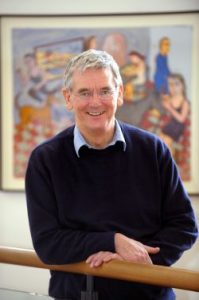
William Chambers
Dr. William Chambers, a Geographer, is a Professor Emeritus of Liverpool Hope University where he was Pro- Vice Chancellor External Relations and Widening Participation and Provost of the Creative Campus. He is currently Visiting External Examiner Institute for Tourism, Travel and Culture in the Department of Tourism Management University of Malta. He has been a member of the Editorial Board of the Journal of Geography in Higher Education and has been a (English Universities) Quality Assurance Agency Reviewer, Auditor and Assessor. He was founder member and vice-president of UNeECC and a member of their Scientific Committee.
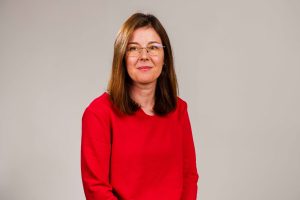
Raluca Iacob
Raluca Iacob is a cultural manager and public policy specialist with more than 15 years of experience in cultural project management, strategizing, analyzing, guiding cultural practices and policies. Her knowledge focuses on the role of culture for local development and its impact on education and the quality of democracy, public culture, good governance and the governance of complex projects. Since July 2022 she has been a member of the Coordination Board of the Center for Projects of the Municipality of Timișoara, as Coordinator of the monitoring and evaluation processes of TImișoara 2023 ECoC Programme, in relation to its results and impact, and is currently also coordinating the formulation of the Legacy Plan for the City.
